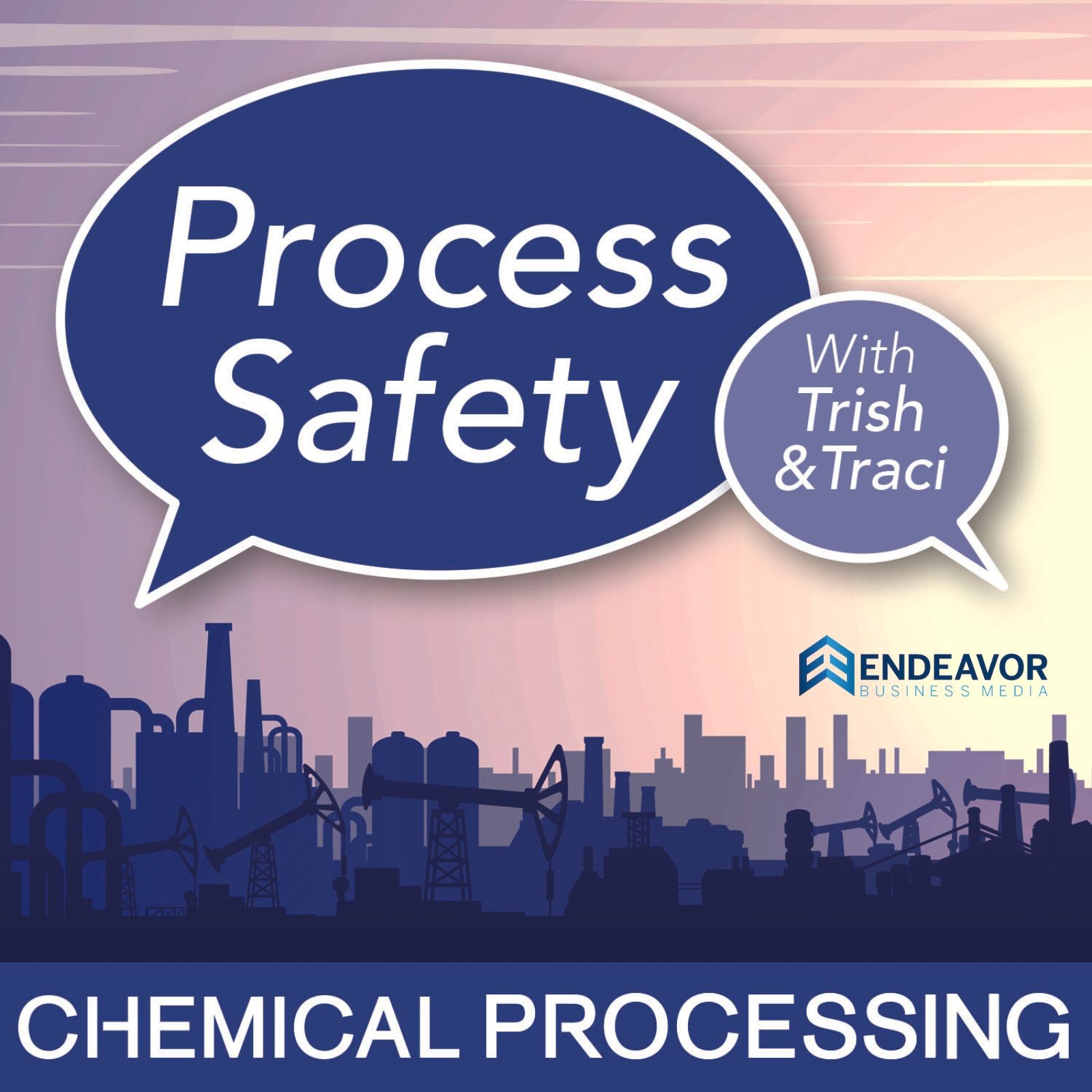

Process Safety with Trish & Traci
chemicalprocessingsafety
Sharing insight from recent process-safety incidents to avoid accidents at chemical processing plants.
Episodes
Mentioned books

8 snips
Jan 13, 2026 • 24min
Challenger Disaster 40 Years Later: The Deadly Cost of Reversing Safety Burden
The discussion kicks off with a tense pre-launch meeting where engineers debated safety amid uncertainty. They delve into the tragic Challenger disaster, highlighting the failure of O-rings in freezing temperatures. A crucial takeaway emphasizes reversing the burden of proof, shifting the focus to requiring evidence of safety. They explore how simple demonstrations, like the famous iced-water test, can effectively convey risks. Lastly, the importance of protecting technical authority is stressed, ensuring engineers feel safe to halt unsafe operations.

Dec 23, 2025 • 6min
Bird’s-Eye View Prevents Process Safety Groundings
This In Case You Missed It episode brings the written word to life. Today, Trish Kerin, the director of Lead Like Kerin, and Stay Safe columnist for Chemical Processing, will read her column "Bird’s-Eye View Prevents Process Safety Groundings," which was published to chemicalprocessing.com on Dec. 17, 2025.

Dec 9, 2025 • 34min
Young Engineer Champions Process Safety Via Social Media
In this year-end episode, hosts Trish Kerin and Traci Purdum welcome Hayley Little, a U.K.-based process safety engineer who tracks quarterly catastrophic incidents on LinkedIn. The discussion explores origin stories in process safety, the critical gap in fundamental safety knowledge outside petrochemical industries, and the alarming frequency of preventable incidents in lower-hazard sectors. They discuss innovative solutions including AI tools, virtual reality training and social media outreach to democratize process safety education. The conversation emphasizes the urgent need for better university training, field presence over desk work and human factors integration to make it easier to "accidentally get it right."

8 snips
Nov 25, 2025 • 23min
Platypus, Duck or Weak Signal? Process Safety Lessons from Down Under
Trish Kerin, director of Lead Like Kerin and a columnist for Chemical Processing, shares insights from her book, The Platypus Philosophy. She explains how weak signals can predict industrial incidents, challenging the idea of unforeseen events. Using the platypus as a metaphor, she illustrates how partial sightings can reveal hidden hazards. Trish's engaging storytelling highlights the importance of early signal recognition and offers practical tips for applying these concepts in safety practices. Tune in for a unique blend of biology and process safety wisdom!

Nov 11, 2025 • 24min
Buncefield Explosion: 20 Years Later, Critical Lessons on Tank Storage Safety
The Buncefield explosion occurred when a gasoline storage tank overfilled after both its level gauge and independent high-level switch failed. Gasoline vapor formed a massive cloud that ignited, causing significant damage to surrounding business parks. Fortunately, the Sunday morning timing prevented fatalities, though 43 injuries occurred. The incident revealed critical gaps in safety control verification, testing procedures, and maintenance regimes. Twenty years later, the disaster emphasizes the importance of recognizing weak signals, maintaining bund integrity, and ensuring operators actively monitor tank filling operations rather than relying solely on automated systems.

Oct 28, 2025 • 5min
Aborted Landing Reveals Critical Lessons in Safety Communication
In this episode, Trish Kerin reads her most recent column, which highlights the importance of immediate communication in safety situations, even when complete information isn't yet available to share.
You can read the column here.

9 snips
Oct 14, 2025 • 25min
Henry David Thoreau of Process Safety – Trevor Kletz
Trevor Kletz transformed process safety with revolutionary HAZOP advocacy and intrinsic safety principles. His approach highlights the importance of learning from accidents and simplifying designs to avoid complexity. The hosts discuss how Kletz shifted the focus from blaming human error to creating resilient systems. They also dive into the significance of storytelling in organizational memory and encourage a return to basic design principles for safer outcomes. Kletz’s legacy continues to inspire safety practices and innovations.

Sep 23, 2025 • 18min
Hidden Hazards: 10 Common PHA Oversights
When OSHA's Process Safety Management (PSM) standard took effect in 1992, it promised a new era of systematic hazard identification. Three decades later, process safety professionals are still witnessing the same critical oversights repeatedly compromising facility safety—oversights that have contributed to near misses, and far worse, major incidents.
Editor-in-Chief Traci Purdum reads an article from Felicia Miller, senior principal engineer at ABSG Consulting and Darshankumar Lakhani, senior manager in engineering at ABSG.
Original article: https://www.chemicalprocessing.com/safety-security/risk-assessment/article/55311485/hidden-hazards-10-common-pha-oversights

Sep 9, 2025 • 33min
How Equipment Reliability Impacts Process Safety
This episode explores the critical role of equipment reliability in chemical processing, focusing on three major incidents: Longford, BP Texas City and Buncefield. Trish highlights how faulty instrumentation, poor maintenance and overlooked management of change led to catastrophic failures, fatalities and environmental impacts. The discussion emphasizes safety-critical elements, maintenance KPIs and the importance of accurate instrumentation.

Aug 26, 2025 • 6min
Process Safety: The Dangers of Blindly Following Instructions
Workers who challenge flawed procedures can improve safety and production. In this episode, Trish Kerin reads her latest column, which details how a trip to Tasmania with her sister turned getting lost into a process safety lesson of not blindly following procedures.
Enjoy as our favorite Australian safety guru guides you through the Bass Strait to Cataract Gorge.


